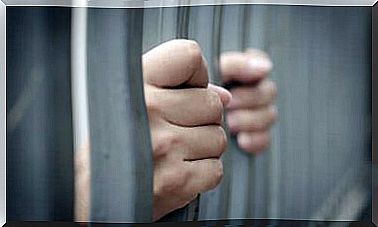How To Deal With Stage Fright And The Fear Of Failing

Most people have experienced stage fright and the fear of failing at some point. These are normal experiences that appear in situations when you are exposed to the judgment of others. Stage fright and the fear of failure usually go hand in hand. This is because the feeling that other people are judging you in some way is a trigger for anxiety.
Although this fear is normal, the intensity determines whether it is a limiting factor for living a full and satisfying life. If the stage fright cripples you, you may end up giving up valuable opportunities and experiences. With this in mind, we will discuss the common symptoms of stage fright and the fear of failure, and share some helpful recommendations on how to deal with them.

What is stage fright?
Stage fear becomes a problem when it begins to affect the way you live your life and limits your personal and professional opportunities. Failure to address it could cause significant harm.
Have you ever quit something or postponed an event due to stage fright? Trying to avoid these feelings or control them is often the real root cause of the problem. This is because you end up linking these unpleasant feelings with the symptoms that are causing the discomfort. Among the symptoms we have the following:
- Trembling limbs
- Dry in the mouth
- Excessive sweating
- A lump in the throat
- Pressure in the chest and abdomen
- Fast heartbeat
- Dizziness
- Feel like you’re in a dream
- Fear of losing control of the situation
- To be afraid of failing and being judged by others
Stage fear and the fear of failure
It is normal and healthy for others’ opinions to influence you to some degree. However, with stage fright, the judgment of others becomes so important that it can affect your performance or even paralyze you completely. It is interesting to note that your own high standards are often the cause of this kind of fear.
Sometimes the expectation of failing triggers a series of actions you take to get rid of or avoid emotions that begin as normal. The more you try to make them disappear, the more important they become. In fact , the emotions you are trying to avoid begin to demand more attention than you were originally nervous about.
Coping with stage fright and the fear of failure
It is important to note that stage fright is something everyone experiences. Even people who regularly speak in front of others have some degree of stage fright.
It is easy to look at relatively successful people and imagine that they do not experience the same fear and insecurity as you. However, the only difference between success and failure is often looking beyond your symptoms rather than being caught by them.
When you experience stage fright and the fear of failure, it is probably because you are doing something that is important to you. To what extent should you let your symptoms dominate? What can you do to distance yourself from your symptoms?

Recommendations to meet your fears
- Practice, practice, practice! Film yourself and do what you are going to do in public (dance, play an instrument, give a speech and defend a dissertation, etc.) Seeing / hearing yourself is a kind of exposure therapy for what you are afraid of. When you film yourself, you can even make conscious mistakes to see how quickly and well you can correct them.
- Challenge yourself. Do other things trigger similar reactions on a daily basis? What is your normal response? Do these symptoms come to tell you that there is something you can not do? What small step can you take to make things different?
- Observe your symptoms as if you were a scientist making a discovery. Mindfulness techniques can help you have a relationship with your symptoms and get to know yourself better. Being present can also help you distance yourself from your fears and make it harder for your symptoms to take control of the situation.
Stage fright and the fear of making a mistake trigger some rather unpleasant experiences. These can be paralyzing for some people. They often begin to act as insurmountable obstacles. Yet certain coping strategies only serve to nourish your fears, especially if you are trying to suppress your thoughts or avoid exposure to what you are afraid of. Try some of the things we shared with you today and see what happens!









